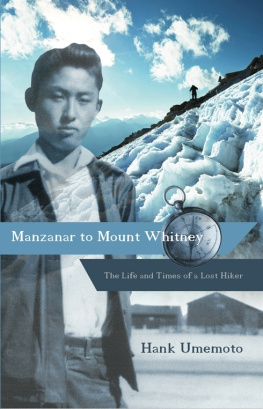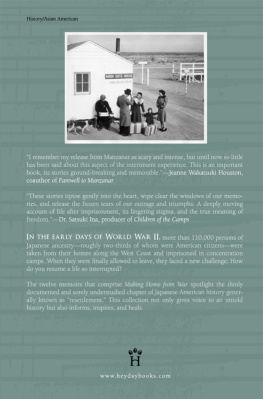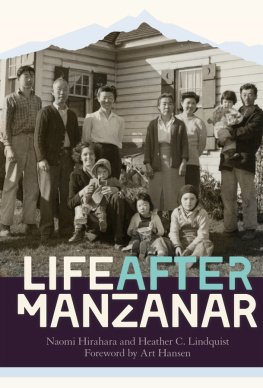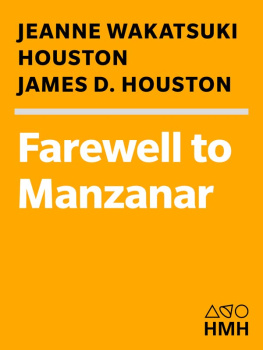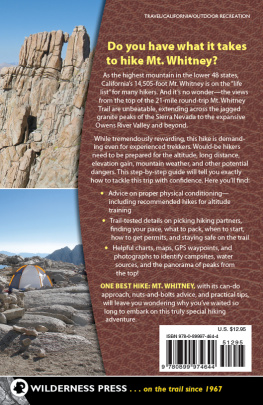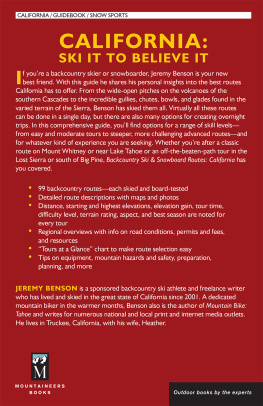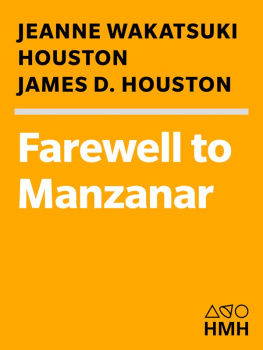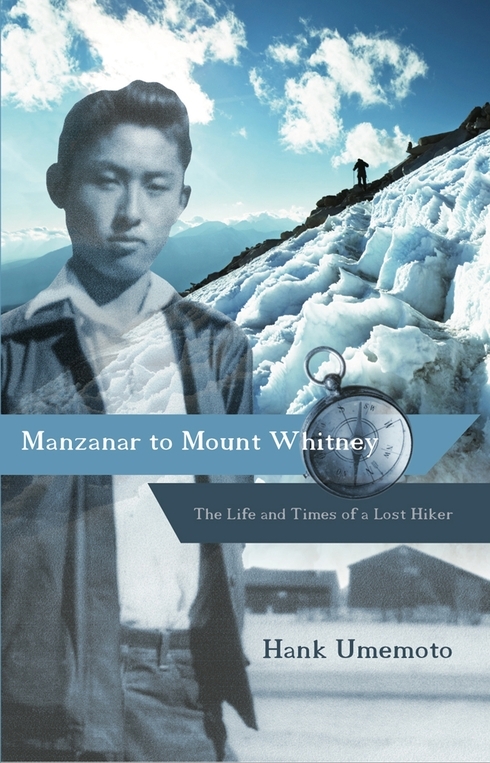Acknowledgements
Just for the heck of it, during the late 1980s I wrote a series of three-hundred-word personal essaysone a month for forty-eight consecutive monthsand sent them to my children. A few stories were published in the Rafu Shimpo newspaper and the Nanka Nikkei Voices Journal , and some of those who read the stories commented on how surprised they were since I dont look or talk like the intellectual type. My sincere thanks go to these people, who in their way encouraged me to continue my writing endeavors.
Those forty-eight stories were laid to rest for the next twenty years, until 2011, when I accidentally stumbled onto the files and, just for the heck of it, printed and bound the stories for my children. When my daughter Karen and son-in-law Brian asked if I minded if they tried to get the collection published, my reply was simply, Do whatever you want with it. To Karen and Brian, then, go my thanks for putting this project into motion by contacting my publisher and obtaining my grant and following through with contributing to every aspect of the project to the very end.
When Malcolm Margolin, publisher at Heyday, was contacted, he commented that I lacked professionalism but had a bizarre sense of humor and a unique writing talent that, although amateurish, was enough to commit him to publishing the stories. My appreciation goes to Malcolm for plunking down his bet on a longshot.
With Malcolm and Heyday attached to the project, the California State Library issued a grant to see it through. To the California State Library and the California Civil Liberties Public Education Program, I wish to express my gratitude.
To best present the manuscript in a professional manner, I sought the aid of Naomi Hirahara, an educator and seasoned author of several books pertaining to Japanese American culture. She suggested the title Manzanar to Mount Whitney and introduced the concept of weaving my internment camp stories into my hiking narratives. I thank Naomi for making this volume uniquedifferent than any other book ever published on the topic.
To further refine the text, Gayle Wattawa and Lisa K. Marietta of Heyday pored over the manuscript and made numerous helpful comments and suggestions. I am indebted to Gayle and Lisa for their expertise in transforming a group of random stories into a captivating, cohesive book.
Without the encouragement and support of all these people along the way, the stories I had written just for the heck of it might have remained in my computer, archived among the dead files, until they were eventually deleted, forever forgotten.
About the Author
Hank Umemoto was born in 1928 to immigrant grape farmers in Florin, a rural community near Sacramento, California. At the age of thirteen, he and his familyalong with 115,000 men, women, and children of Japanese ancestrywere evacuated from the West Coast and imprisoned by the U.S. government in internment camps for the duration of World War II.
Hank spent three years and three months at Manzanar War Relocation Center, located in the eastern foothills of the Sierra Nevada Range. From inside the five-strand barbed wire enclosure on the desert floor, he often gazed at the zigzagging Whitney Portal Road that led to the main trail going up Mount Whitney, the highest peak in the contiguous United States. He always dreamt of climbing the Big One someday.
After his release from camp, he moved to Los Angeles, where he spent the first three and a half years living in skid row. After finishing high school, he worked to support himself and his mother while attending Los Angeles City College. During the Korean War, he served overseas in the army with 38th Military Intelligence Service. After his discharge, he attended Cal State Los Angeles using funds from the GI Bill, then married, raised a family, and worked in a variety of trades and businesses. His jobs included gardener, owner of a jewelry store, owner of a mail-order business, and insurance agent with Cal Western Life. He eventually started a print shop and remained in the printing business for thirty-two years, until his retirement in his mid-seventies. He now writes for enjoyment during his sunset years.

About Heyday
Heyday is an independent, nonprofit publisher and unique cultural institution. We promote widespread awareness and celebration of Californias many cultures, landscapes, and boundary-breaking ideas. Through our well-crafted books, public events, and innovative outreach programs we are building a vibrant community of readers, writers, and thinkers.
Thank You
It takes the collective effort of many to create a thriving literary culture. We are thankful to all the thoughtful people we have the privilege to engage with. Cheers to our writers, artists, editors, storytellers, designers, printers, bookstores, critics, cultural organizations, readers, and book lovers everywhere!
We are especially grateful for the generous funding weve received for our publications and programs during the past year from foundations and hundreds of individual donors. Major supporters include:
Acorn Naturalists; Alliance for California Traditional Artists; Anonymous; James J. Baechle; Bay Tree Fund; S. D. Bechtel, Jr. Foundation; Barbara Jean and Fred Berensmeier; Berkeley Civic Arts Program and Civic Arts Commission; Joan Berman; Buena Vista Rancheria; Lewis and Sheana Butler; California Civil Liberties Public Education Program, California State Library; California Council for the Humanities; The Keith Campbell Foundation; Center for California Studies; Jon Christensen; The Christensen Fund; Compton Foundation; Lawrence Crooks; Nik Dehejia; Frances Dinkelspiel and Gary Wayne; Troy Duster; Euclid Fund at the East Bay Community Foundation; Mark and Tracy Ferron; Judith Flanders; Karyn and Geoffrey Flynn; Furthur Foundation; The Fred Gellert Family Foundation; Wallace Alexander Gerbode Foundation; Nicola W. Gordon; Wanda Lee Graves and Stephen Duscha; Alice Guild; Walter & Elise Haas Fund; Coke and James Hallowell; Hawaii Sons, Inc.; Sandra and Charles Hobson; G. Scott Hong Charitable Trust; Humboldt Area Foundation; The James Irvine Foundation; Kendeda Fund; Marty and Pamela Krasney; Kathy Kwan and Robert Eustace; Guy Lampard and Suzanne Badenhoop; LEF Foundation; Judith and Brad Lowry-Croul; Kermit Lynch Wine Merchant; Michael McCone; Michael Mitrani; Michael J. Moratto, in memory of Ernest L. Cassel; National Wildlife Federation; Steven Nightingale; Pacific Legacy, Inc.; Patagonia, Inc.; John and Frances Raeside; Redwoods Abbey; Robin Ridder; Alan Rosenus; The San Francisco Foundation; San Manuel Band of Mission Indians; Sonoma Land Trust; Martha Stanley; Roselyne Chroman Swig; Thendara Foundation; Sedge Thomson and Sylvia Brownrigg; Tides Foundation; TomKat Charitable Trust; The Roger J. and Madeleine Traynor Foundation; Marion Weber; White Pine Press; John Wiley & Sons, Inc.; The Dean Witter Foundation; Lisa Van Cleef and Mark Gunson; Bobby Winston; and Yocha Dehe Wintun Nation.
Board of Directors
Guy Lampard (Chairman), Barbara Boucke, Steve Costa, Nik Dehejia, Peter Dunckel, Karyn Y. Flynn, Theresa Harlan, Susan Ives, Bruce Kelley, Marty Krasney, Katharine Livingston, Michael McCone, Lee Swenson, Sonia Torres, Lisa Van Cleef, and Patricia Wakida.
Getting Involved
To learn more about our publications, events, membership club, and other ways you can participate, please visit www.heydaybooks.com.

